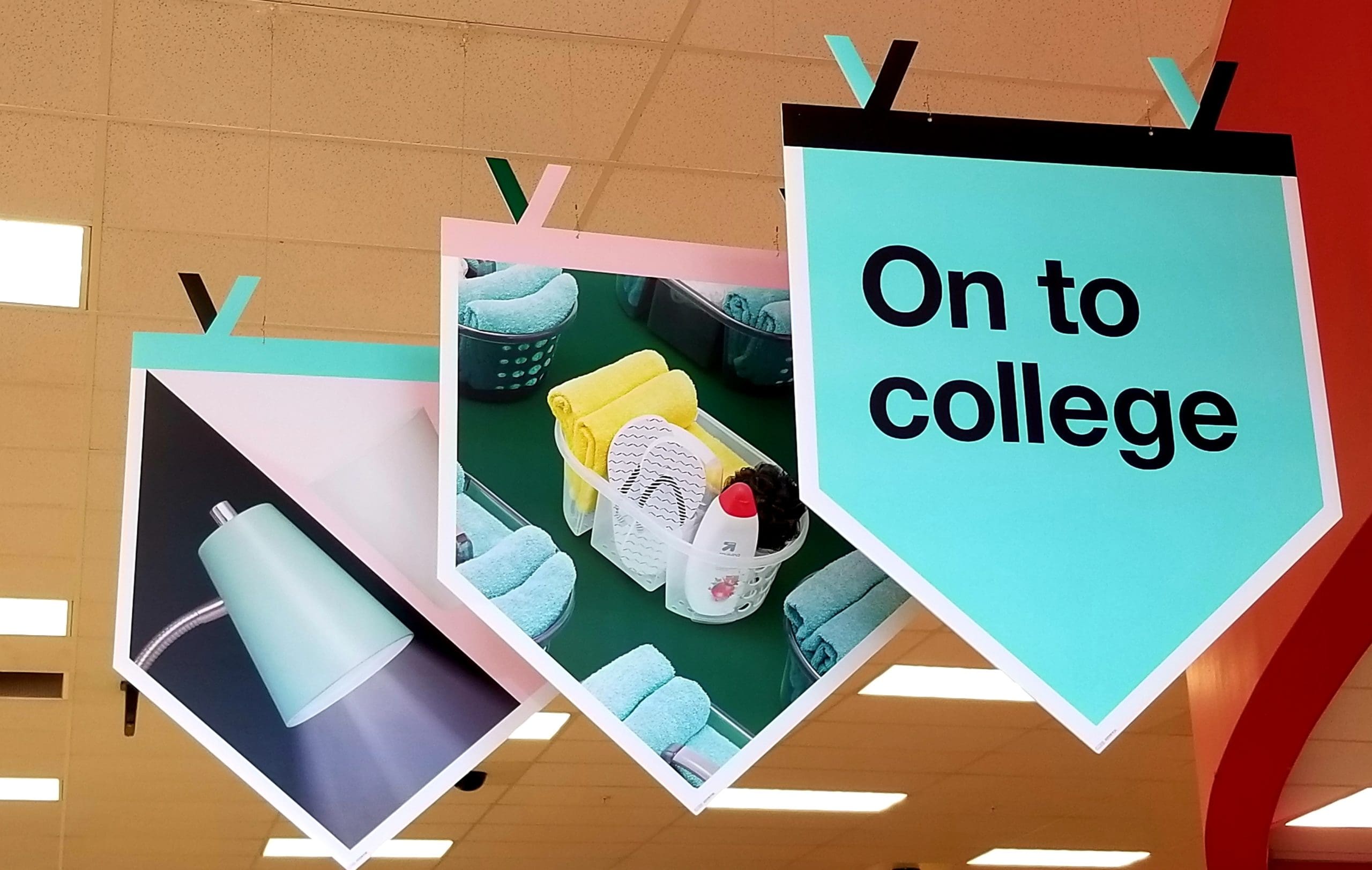Higher education is a powerful tool that can open doors to a world of opportunities, but choosing the right path can be daunting. With the rise of online education and the ever-evolving landscape of traditional college degrees, the choice between the two has become more complex than ever. Are you ready to dive into the benefits and drawbacks of both options and make an informed decision? Let’s embark on this educational journey together and explore, “Is pursuing a higher education a good idea?”
Short Summary
- Higher education is a valuable investment with increased earning potential and job security.
- Online & traditional degrees offer different levels of flexibility, interaction, & motivation – consider the pros/cons.
- Consider your learning style, career goals & personal circumstances when deciding between an online or traditional degree.
The Value of Higher Education

Whether through online programs or traditional colleges, pursuing higher education is an investment in yourself that can reap numerous rewards. These include increased earning potential, broader career opportunities, enhanced personal development, and improved job security.
But how do these benefits differ between online and traditional degrees? Let’s break down the details in the following sections.
Earning Potential

It’s no secret that a college degree can lead to higher earnings. College graduates can earn around $50,000 per year, compared to just $30,000 for high school graduates.
Additionally, specific fields can offer even higher salaries; for example, nurses with a bachelor’s degree can make an average of $73,000, while other fields might see nearly $70,000 annually.
Online or traditional higher education can be your ticket to a more financially stable future.
Career Opportunities
The career possibilities for those with a college degree, whether online or traditional, are vast and varied. The options are nearly limitless from senior systems administrators and software developers to information technology managers and network administrators.
Moreover, research shows that more than a third of companies view candidates with online degrees as favorably as those with traditional degrees, with 79% of these companies hiring someone with an online degree in the last year. The key takeaway? Employers respect online degrees, and career opportunities are abundant.
Personal Development
Beyond the financial and professional rewards, higher education can contribute significantly to your personal growth. College can help you hone your analytical thinking, understand complex topics, and communicate effectively while developing discipline, organization, and time management skills.
Additionally, building a professional network in college can open doors to internships and other real-world experiences that look great on your resume. Whether online or traditional, higher education can be a transformative experience.
Job Security
A college degree offers better pay and career prospects and bolsters your job security. With a degree, you’re less likely to face layoffs and enjoy a more stable career.
This added security can provide peace of mind and a sense of accomplishment, knowing that your investment in higher education will continue to pay dividends throughout your career.
Comparing Online and Traditional Degrees

As we’ve explored the value of higher education, it’s essential to consider the differences between online and traditional degrees. While both options have strengths and weaknesses, they can be distinguished regarding flexibility, interaction, and motivation.
In the following sections, we’ll delve deeper into these aspects and the advantages and disadvantages of each type of degree.
Flexibility
One of the main advantages of online degrees is their flexibility. Online students can work at their own pace and study whenever they want. This level of flexibility can be particularly beneficial for those with work or family commitments, allowing them to pursue their education without sacrificing other important aspects of their lives.
In contrast, traditional degrees typically require attendance at scheduled classes, which may not accommodate non-traditional students’ needs.
Interaction
Interaction is another key factor that distinguishes online and traditional degrees. While online courses often involve virtual conversations with peers and instructors through online forums, traditional degrees provide more opportunities for face-to-face interactions with classmates and professors.
This in-person connection can foster a more engaging and supportive learning environment, which some students may prefer over the online setting.
Motivation
The motivation for pursuing an online or traditional degree can also differ significantly. Online degrees often appeal to individuals seeking flexibility, convenience, and the ability to balance their studies with work and life. On the other hand, traditional degrees may be more appealing to those who thrive in a structured environment with in-person interactions and a clear schedule.
Ultimately, the choice between online and traditional degrees depends on your learning preferences and circumstances.
Advantages and Disadvantages of Online Degrees

Online degrees offer several benefits, such as accessibility, affordability, and convenience, but they also come with challenges.
In the following sections, we’ll explore these advantages and disadvantages in greater detail, allowing you to decide whether an online degree is the right choice for you.
Accessibility
Online degrees are highly accessible, with many students taking at least one distance education course during their studies. This accessibility is particularly beneficial for students with mobility issues or those who live in remote areas, as it allows them to pursue higher education without the need to relocate or commute.
Additionally, accessible online learning platforms ensure that all students can access the same information, interact, and reap the same benefits from their courses.
Affordability
Another advantage of online degrees is their affordability. While the cost of online education can vary depending on the institution and program, it is generally cheaper than traditional education. This cost-effectiveness can be particularly attractive for students unable or unwilling to pay substantial debt to finance their education.
Financial aid opportunities, such as grants, scholarships, loans, and work-study programs, are often available for online and traditional degrees.
Challenges
While online degrees offer many benefits, they also present several challenges. These challenges include a lack of in-person contact with instructors and classmates, difficulties staying motivated, technical issues, time management struggles, and limited resources and support.
It is essential to be aware of these challenges and develop strategies to overcome them to succeed in an online learning environment.
Advantages and Disadvantages of Traditional Degrees

Traditional degrees, on the other hand, offer their own set of advantages and disadvantages. While they provide hands-on experiences and personal connections, they can also be inflexible and costly.
In the following sections, we’ll delve into these aspects in more detail to help you determine if a traditional degree is the best option for your educational journey.
Hands-On Experiences
One of the primary advantages of traditional degrees is the opportunity for hands-on experiences, such as internships, lab work, and fieldwork. These experiences can provide valuable real-world knowledge and skills that can be directly applied to your future career.
However, the availability of hands-on experiences can vary depending on the degree program, so it’s essential to research your chosen field to ensure access to these opportunities.
Personal Connections
Traditional degrees also offer the chance to build personal connections with classmates, instructors, and mentors. These connections can be invaluable regarding networking, support, and future career opportunities.
While online degrees may also provide some opportunities for networking and support, the in-person connections facilitated by traditional degrees can be particularly beneficial for many students.
Inflexibility
A significant downside of traditional degrees is their inflexibility. With class schedules and limited course options, traditional degrees may not be suitable for those requiring more flexibility in their education due to work or family commitments.
This rigidity can also increase stress and lower academic performance for non-traditional students who struggle to balance their studies with other responsibilities.
Employer Perception of Online Degrees

As the popularity of online education continues to grow, employers are increasingly recognizing the value of online degrees. However, it is still crucial to consider accreditation and employer preferences when choosing your educational path.
In the following sections, we’ll discuss these factors in more detail to help you make the best decision for your career goals.
Accreditation
Accreditation is vital to online degrees, as it ensures that your education meets high-quality standards. It’s essential to check that a reputable accrediting agency accredits your chosen online program before applying.
Regional accreditation is generally considered more prestigious than national accreditation, so be sure to research the accreditation status of your prospective online institution.
Employer Preferences
Employer preferences can also play a role in the perception of online degrees. Many employers are more concerned with the program’s quality and the applicant’s skills than whether the degree was earned online or in person.
However, some employers may prefer degrees from well-known institutions with established reputations. Researching your target industry and considering potential employer preferences when choosing between an online and a traditional degree is essential.
Making the Right Choice: Factors to Consider
Deciding between an online and traditional degree depends on various factors, such as your learning style, career goals, and personal circumstances.
In the following sections, we’ll delve into these factors to help you make the best decision for your unique educational and professional journey.
Learning Style

Your learning style significantly determines whether an online or traditional degree is the right fit for you. An online degree may be the best option if you prefer working independently, engaging with technology, and learning at your own pace.
On the other hand, if you thrive in a structured environment with in-person interaction and scheduled classes, a traditional degree may be more suitable.
Career Goals
Your career goals should also be a major consideration when choosing between an online and a traditional degree. Both options can lead to many career opportunities, but it’s crucial to research your chosen field and ensure that your education aligns with your professional aspirations.
Additionally, consider the earning potential and job security associated with your chosen degree, as these factors can impact your long-term career satisfaction.
Personal Circumstances
Finally, circumstances can significantly influence your decision between an online and a traditional degree. Factors such as work schedule, family responsibilities, location, finances, and personal preferences should all be considered when choosing the best educational path for you.
Considering all of these factors, you can make a well-informed decision to set you on the path to success.
Summary
In conclusion, both online and traditional degrees offer unique advantages and challenges, and the right choice depends on your learning style, career goals, and personal circumstances. By carefully considering these factors and researching each option’s reputation, accreditation, and employer preferences, you can confidently embark on the educational journey that best suits your needs and aspirations. Here’s to a bright and successful future in higher education!
Frequently Asked Questions
Higher education opens doors to better career and financial opportunities. A college degree not only leads to higher salaries and greater job security but it also expands the types of jobs you can pursue.
Pursuing higher education is a smart way to maximize your future earning potential and career prospects.
Attending college has many benefits, including gaining knowledge, developing skills, increasing earning potential, and creating valuable connections.
However, it also requires a large financial investment and can be overwhelming with the workload and other commitments.
Ultimately, whether higher education is right for you depends on your circumstances.
The cost of higher education can be prohibitive. With tuition, fees, books, and other materials, students may be in a large debt before they even step foot on the job market.
Additionally, the fact that no degree guarantees a lucrative career can make college a risky choice.
College is an investment in your future that can provide tremendous returns. Studies have shown that people with a college degree tend to make higher salaries, have greater career advancement opportunities, and often enjoy a better quality of life than those who did not pursue higher education.
All of this makes college worth the effort.
I chose to pursue a college degree to invest in my future by expanding my knowledge and preparing myself for professional success. With my degree, I am confident that I will have better job opportunities and be able to make a meaningful impact on the world.



